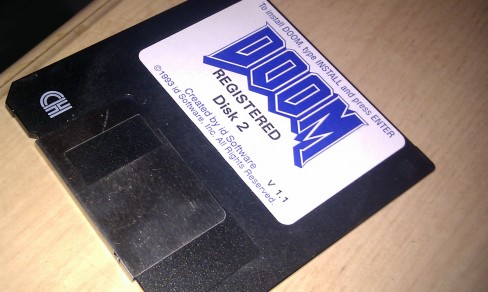It used to be that wireless was something you used to receive radio signals, now it’s something you use access the internet. Technology adapts and evolves but like other forms of evolution that means that some technologies will die away. The floppy disk, like the MiniDisk and video cassette, is now extinct, but which modern technologies should we put on the endangered list, what technologies are doomed?
Point-and-Shoot Cameras
The iPhone is killing the point-and-shoot camera. This has nothing to do with the quality of smartphone’s lens or the detail of the photographs, it comes down to convenience. Even though modern point-and-shoot cameras are faster than smartphones, produce better quality images and have greater functionality they are less convenient to use. In a world where we carry our smartphones with us everywhere taking a quick photograph is easier with the device in your pocket than a purpose-built camera.
And if you don’t believe us, ask Flickr.
The Home Camcorder
The camcorder won’t be with us much longer. It’s not that people aren’t making home movies anymore – we are – but we are using other technologies. Even though they lack the functionality of digital camcorders smartphones allow us to capture those moments quickly. The relatively small file size of the recorded video makes it easy to upload to YouTube or Vimeo.
Smartphones aren’t completely to blame; many users are turning to their DSLRs to record video. A modern DLSR can record higher quality video and audio than most camcorders. A mid-range Canon DSLR can now record stereo audio, HD video, and shoot images while filming. With interchangeable lenses, easy to use manual focus, and high capacity SD cards video files are easier to manage.
The Netbook
Smartphones and tablets have rendered netbooks almost obsolete. Although less powerful than a netbook the iPad is easier to transport and, to be honest, looks far more sexy. The desktop PC will survive, but mainly as a machine you use in work. At home the PC has largely been replaced by the laptop. The future of the Chromebook is also questionable.
Analogue TV
Analogue TV hasn’t so much died out but been hunted down by digital TV. Of course digital TV like saorview or freeview, has many advantages over its analogue cousin. Access to more channels and better quality audio and video are the main features touted but the technological progression is not as straight it would appear – Have you ever tried to watch DTTV when it’s raining? With an analogue signal you’ll still get some audio and video but with digital if your signal is low chances are you’ll see nothing. And god help you if you are in a low signal area, where you’ll see nothing.
DVD, oh and Blu-ray
This is another case of convenience over quality but in this instance it’s not just the media, it’s also the delivery system. iTunes has made catch-up TV easy for content producers and viewers and with almost all TV channels offering on-demand services online why go out and buy boxsets anymore. It’s the same story for films; iTunes, Netflix, and even YouTube (sort of), mean that those HD TVs and computer screens will probably be playing more lower quality video than you would expect.
Games Consoles
The Apple App Store has taken a large bit out of the gaming market. As evidenced by the disappointing sales of Nintendo’s 3DS. This is partially down to a poor selection of launch titles and some negative media reports about health risks associated with the 3D but the iPhone is also responsible. People simply don’t want to carry around a single use gaming device and multiple cartages when their phone can hold dozens of games and perform other functions. It’s also a case that people’s gaming habits have changed; when we are out and about we aren’t looking to play in depth games like Super Mario, we want quick titles such as Angry Birds.
As for home consoles Nintendo, Sony, and Microsoft will be with us for some time to come but like DVDs and Blu-Rays we’ll be getting more and more of our games from the web.
Newspapers
Depending on the reports you read we are approaching the end of the newspaper era. It’s not just news sites that threaten the newspaper, greater access to the news by smartphone, and social media have also made accessing the news faster and more convenient for users.
RSS
In early 2011 Twitter began removing RSS feeds from users’ profiles, Google+ has never offered the service and Google Reader’s future looks rocky. Only Facebook introduced RSS functionality this year., and even that had some limitations. RSS was never mainstream but it attracts a loyal following of users who depend on it for their daily updates.
Books…?
Books haven’t been killed by technology just yet but it is not such a shocking prediction now to say that it’s an endangered medium. In May 2011 Amazon reported that it was selling more eBooks than real ones and the iPad could soon become the only textbook students need.
Disagree with this list, or want to add something? Let us know.













